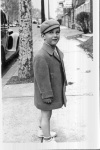
As writers, we face a problem: We’re not the reader. This may sound obvious, but it has important ramifications. Our reader is, in many ways, unknowable, because we have no idea of who will end up picking up our work. We do know some things, though:
Their background probably won’t match ours. Their tastes will be different. Their age group and education will be different to an unknown degree. And, there’s a 50-50 chance that their gender will be different, too. In fact, it’s unlikely that we and a given reader have all that much in common.
Given that, how can we write anything that will be acceptable to all readers? The answer is, we can’t. It is literally impossible to write anything that will be viewed in the same way by all readers.
So, do we accept the fact that the majority of people who read our work won’t “get it?” Or is there a way to eliminate those differences? Obviously, there is, or I wouldn’t be writing this article. The trick isn’t to make our work universally accepted no matter the reader’s background. It’s to make all readers the same.
What we need to do is to make our reader become our protagonist. If we can make them see the situation exactly as the protagonist does; if we give each reader the same set of resources the protagonist will use; if all readers have the same desires, needs, and imperatives as our protagonist, then they will decide on what must be done next in exactly the same way as our hero will—and have that reaction before the protagonist does, and literally become our protagonist in the moment that character calls now.
Do that and you avoid the impossibility of making the writing universal. Instead you’ll make your readers universal. So, with that as our goal, let’s see how we can make it work.
We’ve always relied on presenting the facts accurately, concisely, and dispassionately because that’s how we were taught to write. And it works well for book reports. But when writing fiction, instead of eliminating differences in viewpoint that approach encourages them. Everyone has their own interpretation of your presentation, based on what the words mean to them. Tell the reader, for example, that the protagonist is at peace, and each reader will take a slightly different meaning from the statement. To some, being at peace means there is no stress in their life. For others, that there is no war, or argument. In Islam, peace is, in part, based on submission and surrender to the will of Allah. And, there are hundreds of other shades of meaning to that one word. So expecting a reader to know our viewpoint by reading a given word is impossible unless we focus on that reader, and are able to interact with them, so as to refine our words to fit their background and preconceptions. But, make the reader know why the character feels they are at peace by making that reader view the protagonist’s world as the protagonists does, and the reader’s interpretation of the word no-longer-matters. They will feel as the character feels, emotionally, because for the moment, they will have superimposed the protagonist’s view on their own.
Can we do this using the writing techniques we all learn in school? Hell no. Our teachers spent zero time discussing the nuance of viewpoint. They taught us how to write dispassionately, with our accuracy of observation being the most important item. Why? Because most people will do their writing in a business setting, where accuracy is critical. We were, remember, learning skills to make us useful to employers. Those book-reports we wrote were practice for writing business reports. Those essays, practice for writing papers and letters. No one explained how to use tags, how to structure a scene, or even basics such as the three questions a reader needs answered quickly when entering any scene so as to have context to make sense of it.
Converting the reader into our protagonist requires skills that are unlike those used for telling a story in person, or for creating a story on the stage or screen. Our medium is different, and has different strengths and weaknesses. Instead of stressing fact and accuracy we stress emotional connection. Instead of presenting things from the narrator’s viewpoint we presented from the protagonist’s. Same story, but a very different approach to presenting it. And that means a very different tool-set must be used in creating the presentation.
Our goal, remember, isn’t to make the reader know about the terror our protagonist may be feeling. Our goal is to terrorize the reader. We don’t want the reader to learn about the plot. We want them to live it, moment-by-moment. If you can make someone feel they must stop reading for a moment, to decompress, because the emotional situation is so intense they can’t handle it, you have a very happy reader.
In the end, we have a name for this: it’s called viewpoint. And viewpoint is the single most powerful tool in your repertoire. It is the thing that makes all readers the same.
John W. Campbell, a noted editor once wrote an article in which he presented a hypothetical situation involving an observer and a climber. It went something like this:
Observer: “Don’t climb that tree. If you knew what I know, that’s not just a tree, it’s being used as a power pole, so there’s dangerous high-voltage up there.”
Protagonist: “If you knew what I know…that I’m a trained lineman, doing my job with the proper equipment, you wouldn’t worry.”
Observer: “But if you knew what I know, that your safety gloves are from a shipment that contained defective product, you wouldn’t go.”
Protagonist: “Ah…but if you knew what I know, that we heard about the defect and have inspected them to remove the bad gloves—and that the gloves I use will be pressure tested just before I put them on, you needn’t worry.”
Observer: “But if you knew what I know…”
Point of view is critical. In the example above, were the observer made to know the situation as the protagonist does, confusion would be eliminated and the conversation would never occur.
Obviously, the protagonist could be wrong. He or she could be missing or misinterpreting data, as could the protagonist in our stories. But that’s okay, because both our protagonist and our reader will have the same misunderstanding and make the same mistakes, which drives our plot. And our reader will be just as surprised, shocked, or perhaps pleased to learn of the misunderstanding.
So how do we do that? How do we gain those necessary skills? How can we turn our narrative around and make our reader view our story from the inside out, as against from the outside in? How do we change our own perspective of how to present a story?
The answer to that is quite simple. We do that by learning all we can about point of view and the other important skills a writer needs. We add to our existing knowledge, just the way we did, grade-by-grade, as we built our current set of writing skills. And the more we know, the greater the number of viable choices we have when handling a given situation. The more we know, the better we know what a reader will respond to. And, the more we know the better we get at making our reader feel like our protagonist.
Simple? Absolutely. Easy? Of course not. If it was easy we’d all be rich and famous. Any profession takes time and practice to perfect. So the question isn’t if it’s easy or hard. The question is, is it worth the effort? And that boils down to: should we continue to write using techniques inappropriate to the task, or should we add professional skills to our toolbox? I don’t think you need my help to answer that question.
But still, that’s a lot of work, especially given that we won’t know if we have the potential to make effective use of those skills, and to be successful, until we own and apply them. And that’s a big if, especially since most of us are not going to have people lining up to buy our work. So in reality: do we want to be a writer badly enough to to invest lots of time, and perhaps a few dollars to become a writer as a publisher views that term?
That’s a difficult question to answer, other than to say that if someone can talk you out of writing you aren’t meant to be one. Writers write. It’s what we do. It’s our curse and our blessing.
Something to keep in mind when making that decision: writing isn’t a destination. It’s a journey, one that lasts a lifetime. And if every day we write with a little more skill than we did on the previous day, and we live long enough…
So…now that I’ve discouraged you with the news that you probably won’t get rich from your writing this year, let me make a suggestion as to how to begin your transformation from outside-in to inside-out writing.
A very good article on creating a strong point of view can be found here. It’s based on the work of Dwight Swain, who is notable for having defined many of the techniques that professional writers use, in a clear and concise way. I’d advise you to read the article, think about it, and when it begins to make sense, check the fiction that made you feel as though you were experiencing it, to see how the author made the technique work for that story. And if it seems like something that would help your writing, pick up a copy of Swain’s book, Techniques of the Selling Writer. It both expands on that technique and will show you many others, equally meaningful. Read it slowly, stopping at every point where a new concept is introduced, to think about and practice that point, so as to make it your own rather than to simply learn that it exists.
And when you finish the book put it aside for six months. Use what you’ve learned, gaining skill and competence. Then, read it again. This time, knowing where he’s going, and better understanding the concepts being introduced, you’ll learn as much the second time as you did the first.
Will it make you a published author? Naa. That’s your job. What it will do is give you the tools with which to become one, if-it’s-in-you to do that. And that’s the best we can hope for. Maybe it will turn out to be something interesting, but still, success will still elude you. Could be. Happens to most of us. But still, new writers appear all the time. Why shouldn’t it be you? And as they say, you never know till you try.
Hang in there, and keep on writing.
– – – – – – – – – – – – – – – – – – – – – – – – – – – – – – – – – – – – – –
Author’s note:
These articles are not presented with a, “Do this and you’ll be a published author,” attitude. Anyone who tells you they can provide success via a few words on a blog page is scamming you. Instead, they’re one writer’s view of the ideas put forth by the writing teachers I admire and respect. I’ve done the series as part of what’s sometimes called a Benjamin Franklin debt. If some of what I say seems to make sense, I urge you to seek the teachers themselves, people like Dwight Swain, Debra Dixon, and a host of others, and read their advice directly.

